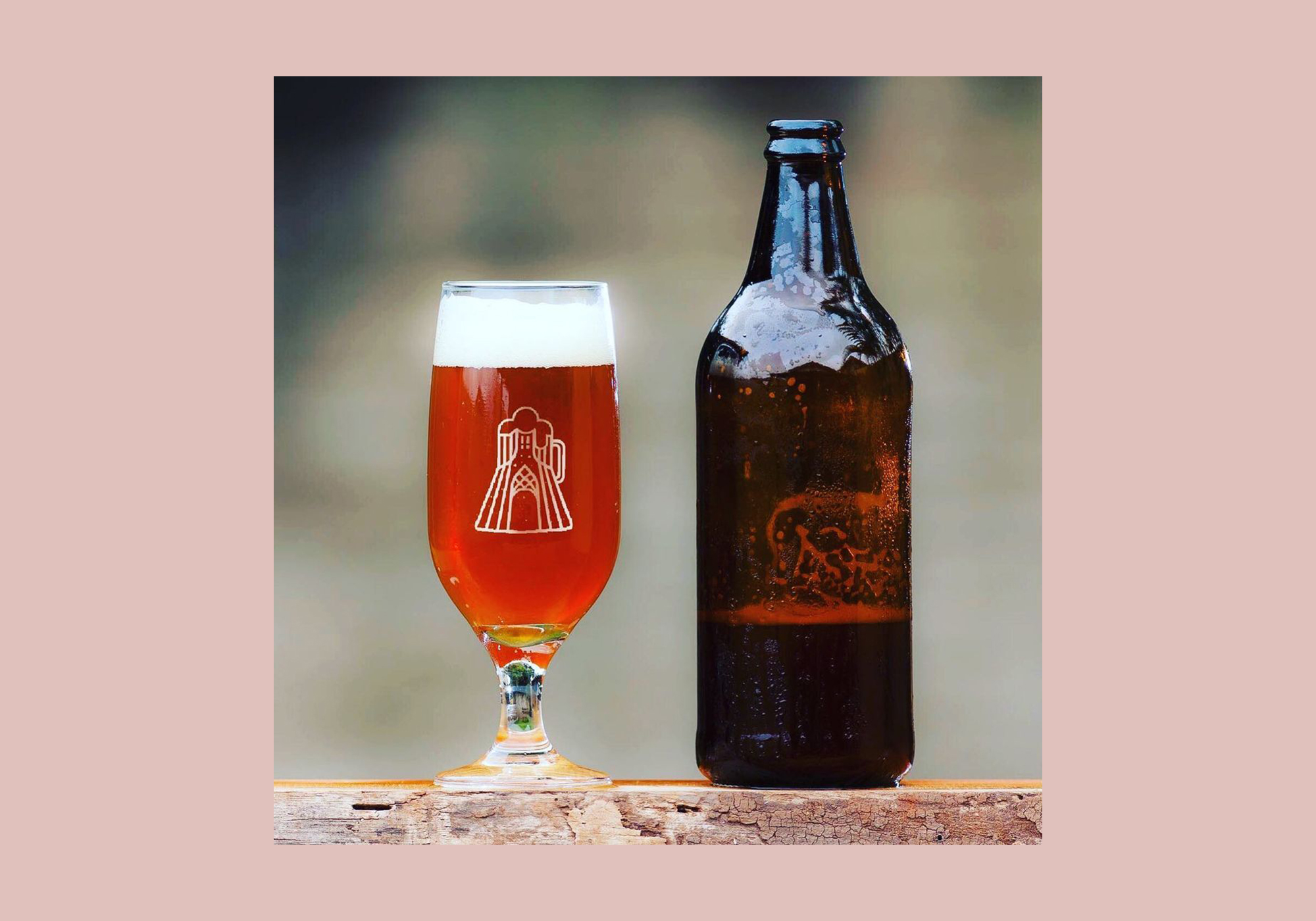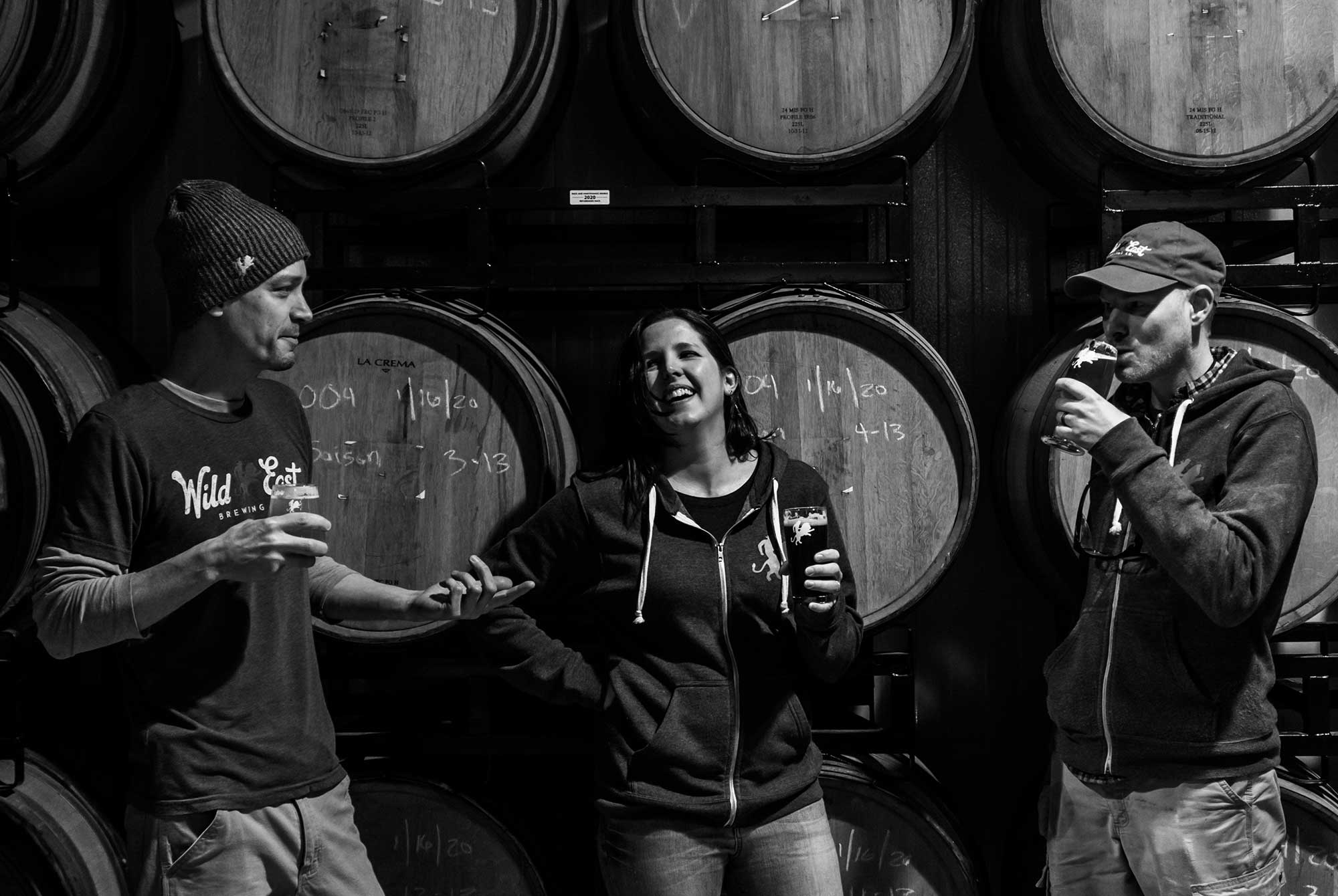Shop
Meet Iranian and Female-owned Back Home Beer, Brooklyn’s Latest Craft Brewery
Zahra Tabatabai is bringing Iranian beer culture to Brooklyn.
American craft beer enthusiasts take access to beer and the freedom to drink it for granted. Just over 100 years ago, thanks to the tangled web woven by the passing of the Wartime Prohibition Act (November 18, 1918), the ratification of the Eighteenth Amendment (January 16th, 1919), and the passing of the Volstead Act (October 28, 1919), prohibition clutched the nation in its dry grip for 13 long, thirsty years. For the most part since then we’ve been free to produce beer and consume it as we please. Now, it’s hard to imagine living with out it. But, we’re not the only ones with a history of alcohol regulation. In fact, in some countries, today brewing or even drinking beer still comes with significant oversight and restrictions.
Seven thousand miles away and across an ocean and a sea, Iranians also understand what its like to live with strict alcohol regulation. Since the Iranian Revolution 42 years ago, the government has suppressed alcohol consumption and production. It’s illegal to drink alcohol of any kind, and to brew it at home, too. (In extreme cases, breaking that law is a death sentence.)
So for Zahra Tabatabai, a daughter to Iranian immigrants and the owner and founder of Back Home Beer in New York City, making beer isn’t just a pastime or an aspiration. It’s an expression of personal liberty. Brewers start up companies for all kinds of good reasons. But not many brewers have as much weight on their beer as Tabatabai — historical weight, cultural weight, and even family weight. But Tabatabai gladly takes on these burdens, turning them into creative expressions of her passion.
Hop Culture talked at length with Tabatabai about Back Home Beer’s origins, the responsibility she feels toward Iranian homebrewers, especially her late homebrewer grandfather, her journey to find a physical space that Back Home Beer can call home, and her adventures pairing Iranian ingredients with well-known and well-liked beer styles.
The Story Behind Back Home Beer
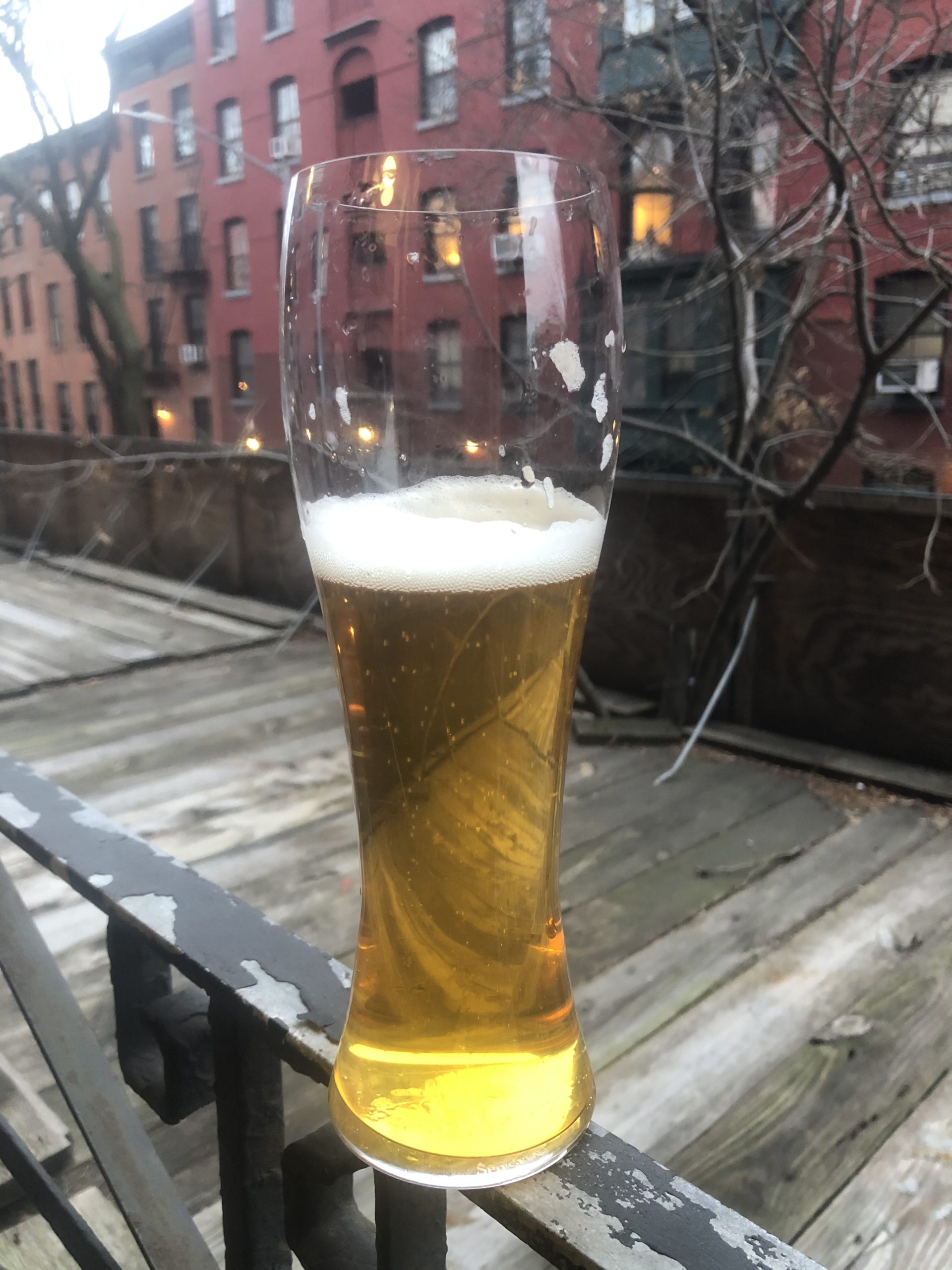
Photo courtesy of Back Home Beer
Andy Crump: Reading up about you, Back Home Beer, and about the history of brewing culture in Iran, does being able to brew in New York feel like a form of liberation almost? When you think about homebrewers in Iran who are sending you photos of what they’re doing, that in and of itself is like taking one’s life into one’s hands. Whereas here, you just get to brew.
Zahra Tabatabai: Right, yeah. I order everything online, and go pick it up, and I’m free to post pictures and tell stories about what I’m doing, so of course it feels liberating.
I also feel like it’s part of my duty to give a voice to some of the people who don’t have one. In one of the first pictures I posted from somebody who was homebrewing, he messaged me and said, “Oh my gosh, this brought back so many memories of when I was brewing with my friend or when I had people over, so thank you so much for posting this. They’re in my phone, but that’s pretty much the limit to what I can do with them.”
A lot of people have come out with stories just like that. So it does feel liberating, and I definitely am very lucky to be able to do that in Brooklyn.
AC: Do you see brewing beer as a form of responsibility?
ZT: I do. A lot of the people that have reached out to me have said, “Wow, you’re so lucky that you get to do that.” They’ve given me some ideas of what they’re doing, too. It feels a bit unfair that I can take some of their ideas. I mean, they’re providing me information and saying, “try this and try that,” because they’re not able to, and it feels a bit unfair.
I do think I have to recognize these people in the best way I can –without putting them at risk — and what they’re providing me and what I’m able to do and what they’re not able to do, maybe advocate for them, or bring light to the fact of what’s going on in the region. It wasn’t always like this. Before the revolution, people were brewing, like my grandfather. So, I want to shed light on the situation as well.
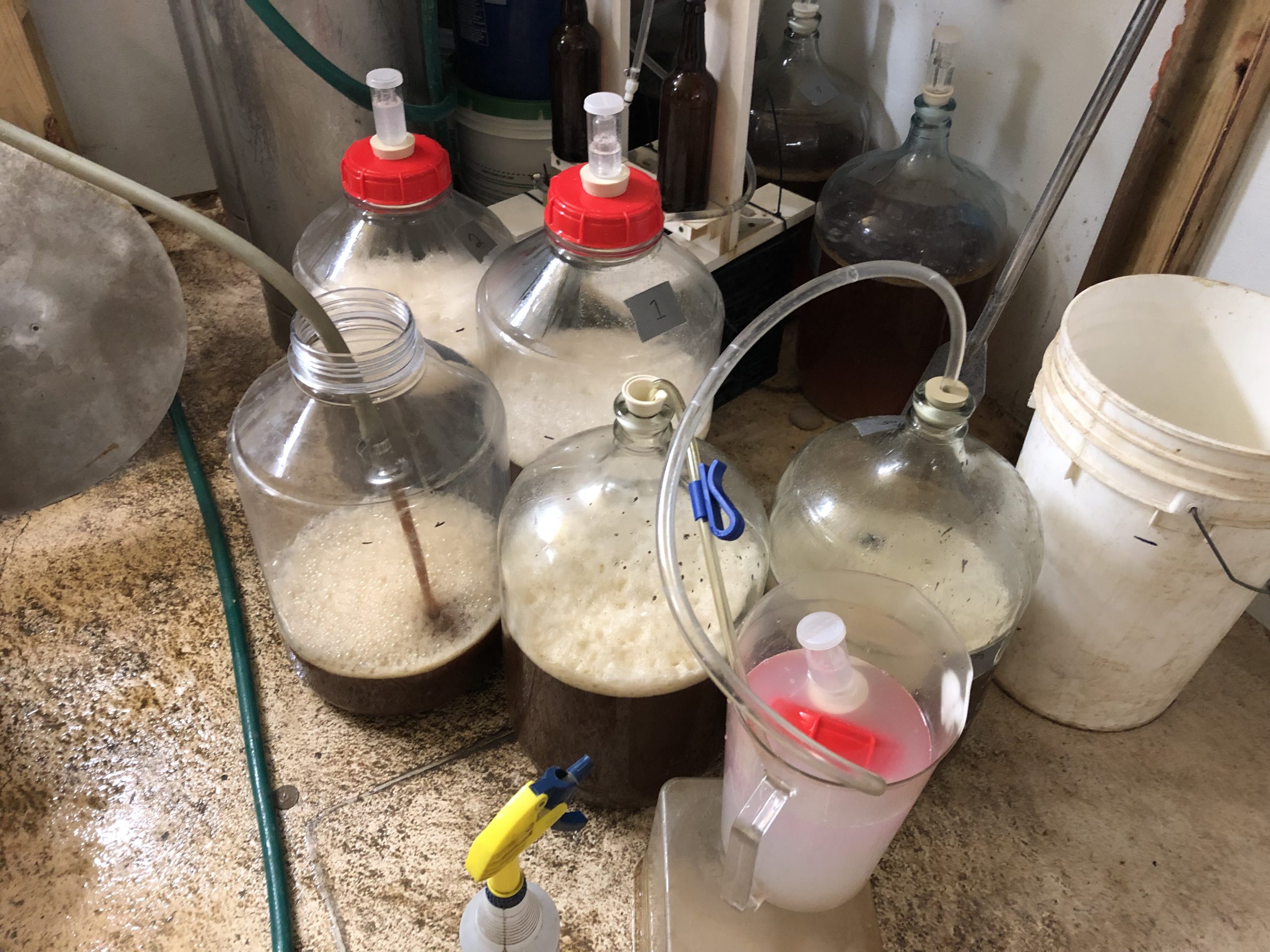
Brewing at Bitter & Esters
Photo courtesy of Back Home Beer
AC: What you’re speaking to is something I would never have considered, which is that element of guilt. It’s such an unexpected thing to feel, but it makes total sense, right? You get to do this. The thought of that, when you sit with that feeling, is it kind of staggering?
ZT: Definitely. I mean, what’s the difference, you know? It’s just the fact that my parents immigrated here during the revolution, and I just happened to be born here, right? But our history is the same, our family is the same, our culture is the same. So it does feel very unfair, the restrictions that they have, not only in this aspect but in so many other regards. I definitely do have that feeling when people reach out and give me ideas or send photos.
Like I said, it’s always positive. A lot of people say, “Hopefully one day I can move to America,” or, “You’re living my dream.” Somebody messaged and said, “My sister loves to make wine, her dream is to open up a vineyard one day,” and they were living in Tehran, you know?
Hopefully she’ll get through that one day, but realistically, this regime has been there for now 40 years. In the back of my mind, I do feel like it probably will never happen for these people. So I feel guilty, and then I feel a responsibility to carry this out and spread the word as much as I can to people who will listen about the history of beer and brewing in Iran and what people are dealing with.
AC: That’s a whole lot to put into beer!
ZT: It is, isn’t it?
AC: There’s uniqueness to the Back Home Beer story and how that applies to both the history and culture that we’ve been speaking to. Not to be disparaging toward my fellow Americans, but I have a strong suspicion the majority of them don’t know about the Iranian revolution, or even that there was one. Do you think this is a lot to put into a drink?
ZT: It is a lot, but I think it’s important. I think people don’t realize the origin of beer and how a lot of the earliest evidence of beer brewing came from the region. It’s kind of like we are bringing it back home. That’s how the name came about, you know?
A lot of the people that I have spoken to, to you’re right: They don’t know about the history, they know what Iran is now. They don’t know what it was before the revolution, and how people were free to brew, and there were breweries and wineries and distilleries. It’s nice to be able to educate people on that.
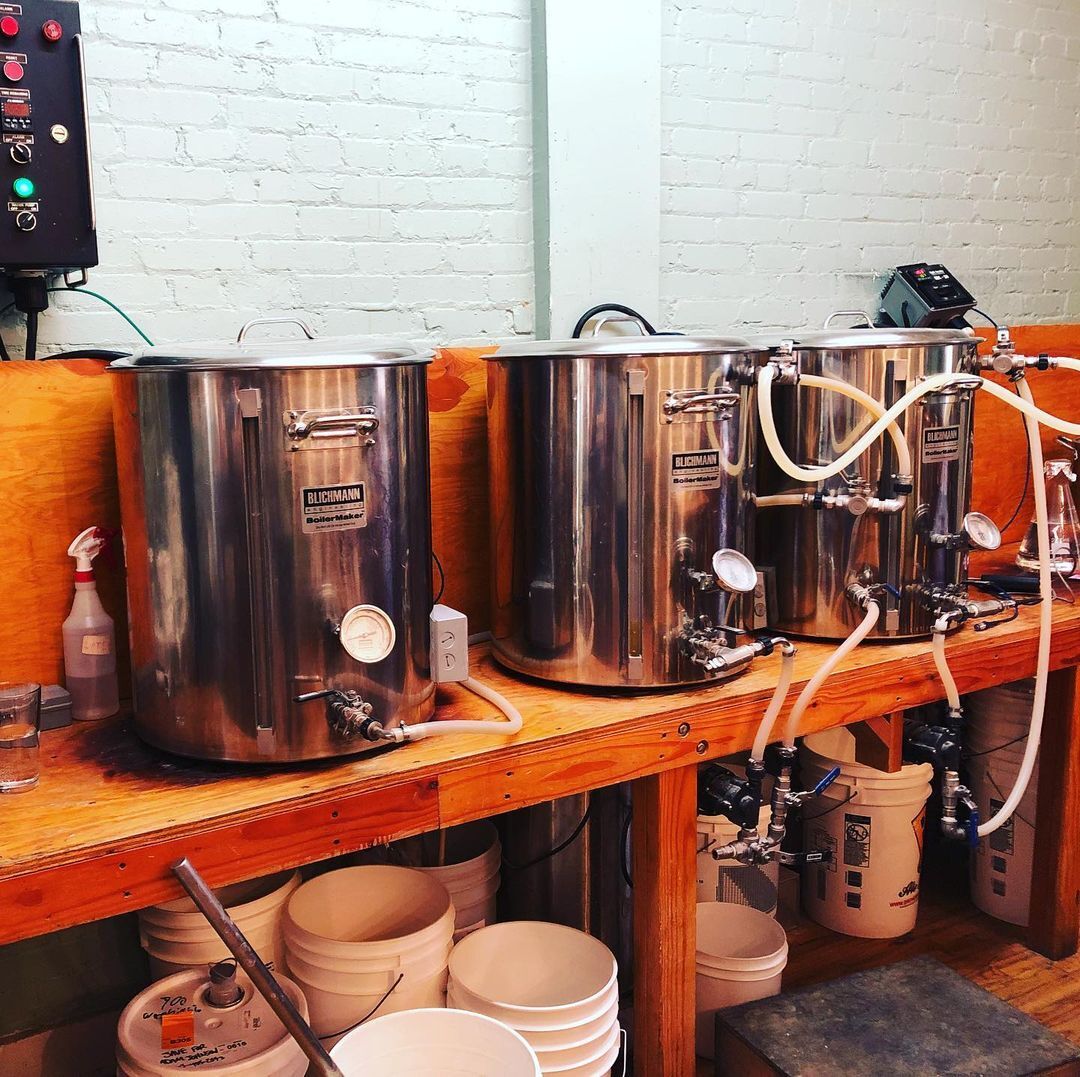
Photo courtesy of Back Home Beer
AC: That gets extended to the ingredients too. One thing that’s really struck me reading over your Instagram, for example, is seeing the styles and ingredients you’re playing with. So that’s part of that educational piece, too?
ZT: I’m no expert to be honest. I’m new to brewing. We’re having somebody who’s going to be helping on recipe building. I’ve been homebrewing, so it’s not like I’ve been in the industry for 10 years, and I know how to scale and put everything together. But I homebrew and I try to come up with recipes and I try to taste different beers with our food and see what matches up well. It just goes by my taste. That’s it.
AC: It’s your opportunity to introduce people to flavors that they’ve not necessarily tasted before. We’re talking about bringing things sourced from Iran to styles that Americans are familiar with without necessarily being familiar with the ingredients. So that’s exciting to you too?
ZT: Definitely very exciting. It is a lot of ingredients that we’re using, but the same styles, just like you said, so it’s really exciting because it’s a taste that we’re familiar with.
A lot of these tastes are used not only in Iran, but in Iraq or Afghanistan, even down into Lebanon and Jordan, to bring back the familiarity of those ingredients is nice. And especially into beer. That’s what I heard about what my grandfather used. I heard it from my grandmother, because he passed away when I was very young, but it’s what he used as well. Based on her memory and what she remembers him using.
Now, because of the sanctions in place, I cannot get any ingredients from Iran. So it’s very difficult to try to work around that. There’s no way to legally send anything from Iran or exchange money or do anything like that.
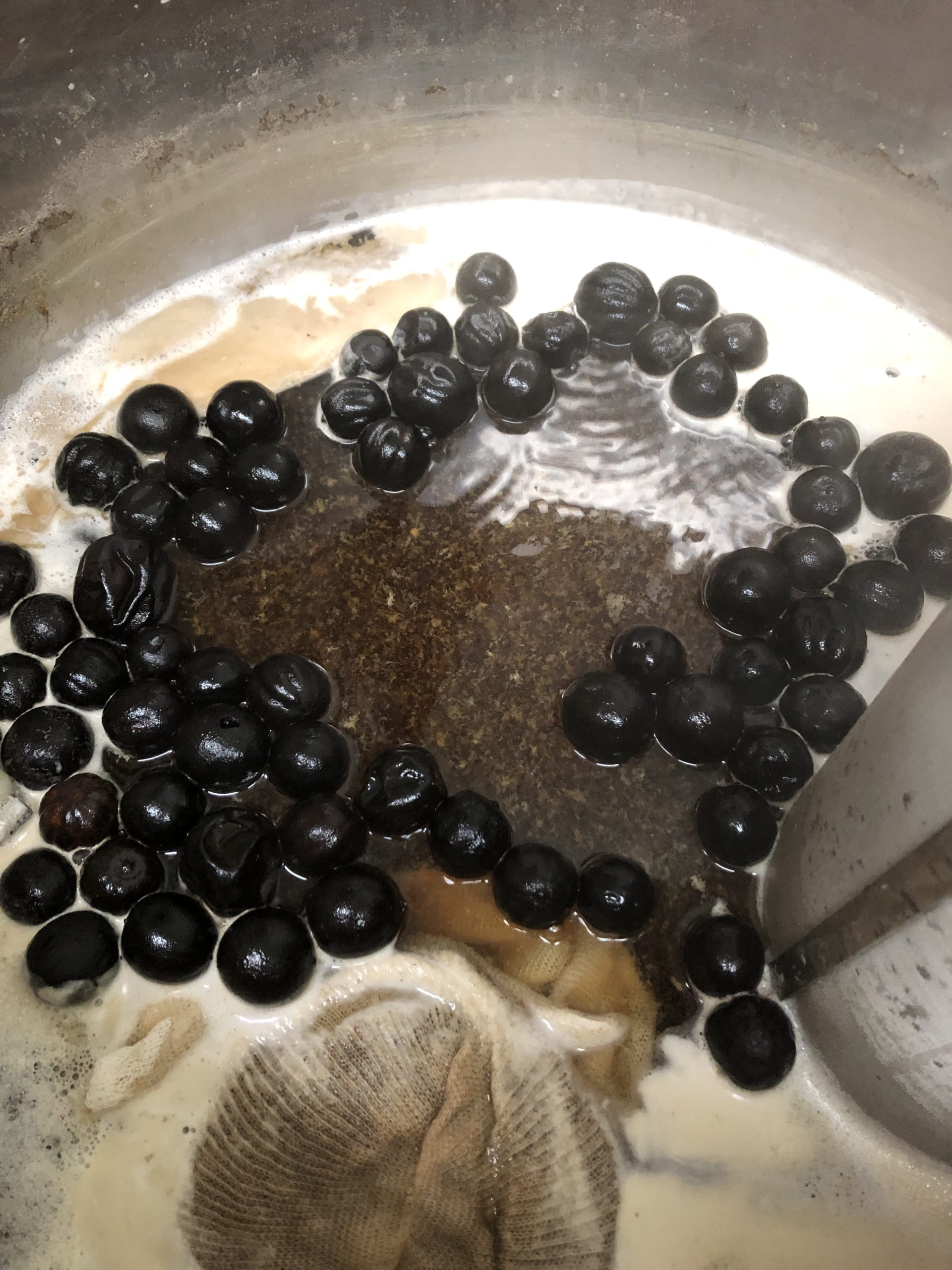
Brewing with black dried limes (limoo amani.)
Photo courtesy of Back Home Beer
AC: I just pulled up the Instagram page and you paired these dried black limes with a wheat beer, which sounds really good to me.
ZT: Yes! That was a really delicious beer. We tried it first in a lager and it didn’t go well. So the wheat beer definitely was the right match. It’s got a smokiness to it, then a little bit of that citrus. They’re sun-dried. These limes are used in stews in Persian food. So any of the stews that you’ve ever had most likely had the black limes.
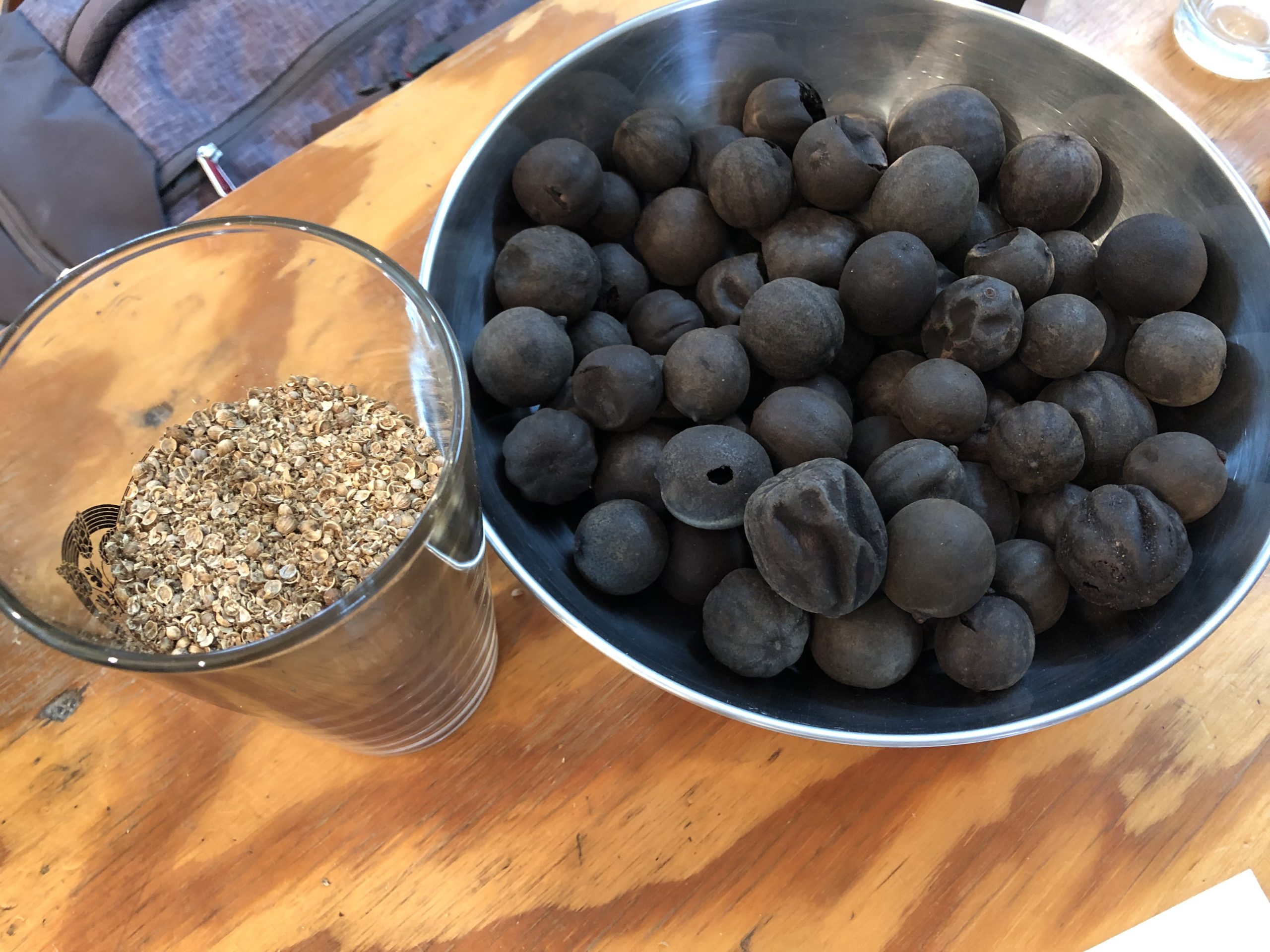
Brewing with black dried limes (limoo amani.)
Photo courtesy of Back Home Beer
AC: I’m not especially familiar with that cuisine, but I’ve certainly had beer with limes in it. So this is a variation on that, a new way to experience that style. Is that what beer is all about for you, when we’re thinking about it as beer and not necessarily in a cultural or political context?
ZT: I would say that a lot of beer is just different variations of the same thing on the market. I was interested in bringing something new, and a new flavor and new styles, inspirations from the Middle East, which is an area that’s really not represented so well in the beer world. I guess for obvious reasons. We wanted to basically try new flavors and tastes in beer, definitely. That was our goal.
AC: I’d be remiss if I didn’t ask about the status of the brewery itself and how that’s coming along?
ZT: Basically, what we’re doing is what a lot of beer companies do. We’re starting out the first few months doing contract brewing. I haven’t made it public yet, but this week we received our license finally. Because it takes about six months in New York City. So we received our wholesale license in order to be able to contract brew at a facility here in the city. We’re really looking anywhere, but we would like to try to stay in the boroughs.
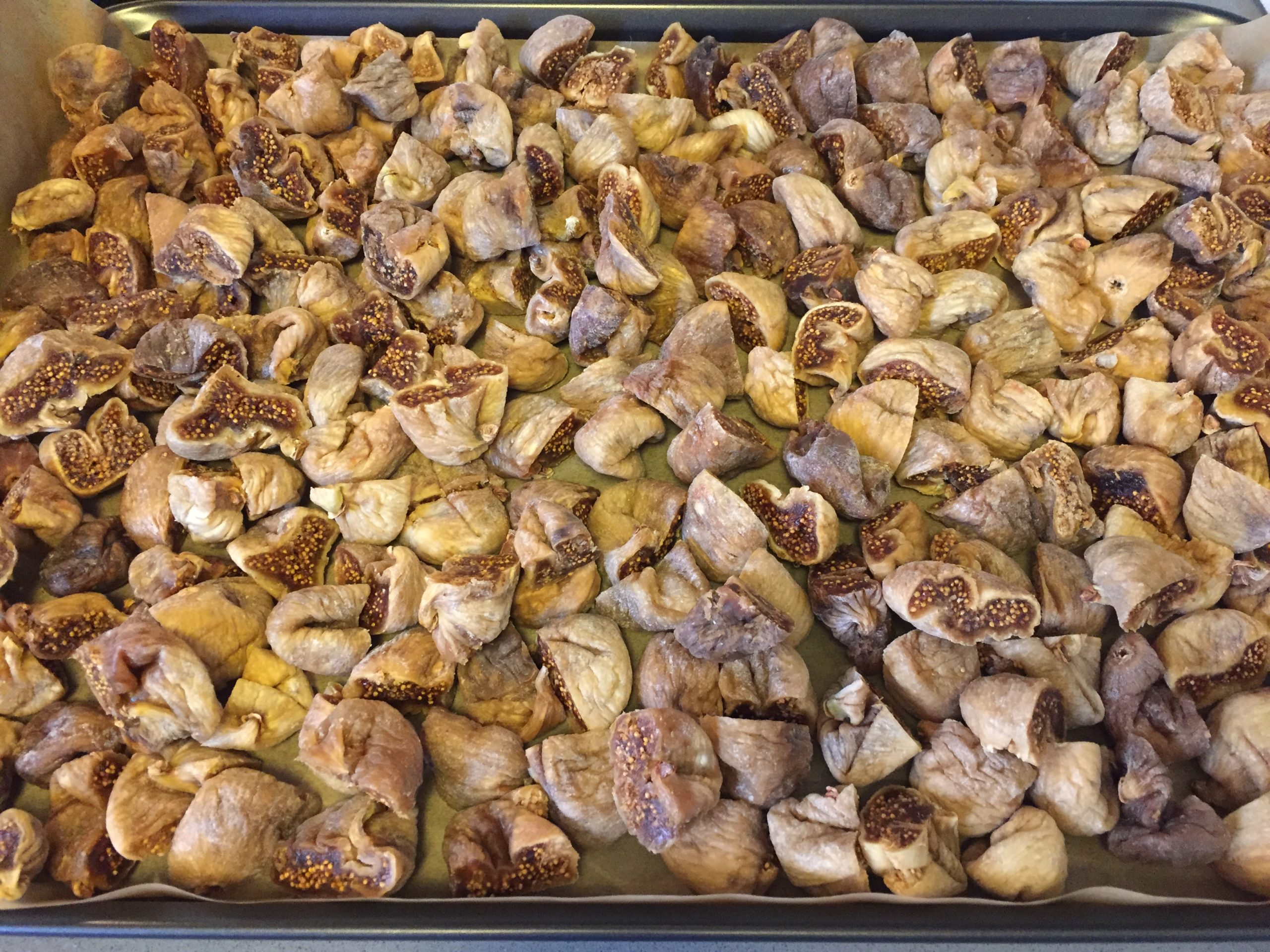
Photo courtesy of Back Home Beer
AC: When will Back Home Beer hit the market?
We’re in talks to start production in May, then hit the shelves and self distribute in New York City for the first several months. During that time we’ll be getting the funds together and getting a physical space.
AC: Is it difficult finding a space in New York, in the boroughs, to do something like this? I mean, especially with COVID going on. Is that especially challenging?
ZT: You know what I would say a few years ago? Yes.
Unfortunately, because of the pandemic, a lot of businesses have had to shut down and close their doors, thousands of food and beverage businesses in the city. Inventory-wise, there is more inventory on the market and the prices are actually lower than they typically would have been in previous years. I’m grateful that there are a lot of new businesses that have been popping up just over the past couple of months, and the city is starting to feel alive again as businesses are opening their doors. There are fresh faces in the market.
So that side I’m not as worried about to be honest, especially because we’re going to be in Brooklyn. It’s a large borough, there are a lot of neighborhoods that are not tapped yet. So I do think that it shouldn’t be too difficult of a process.
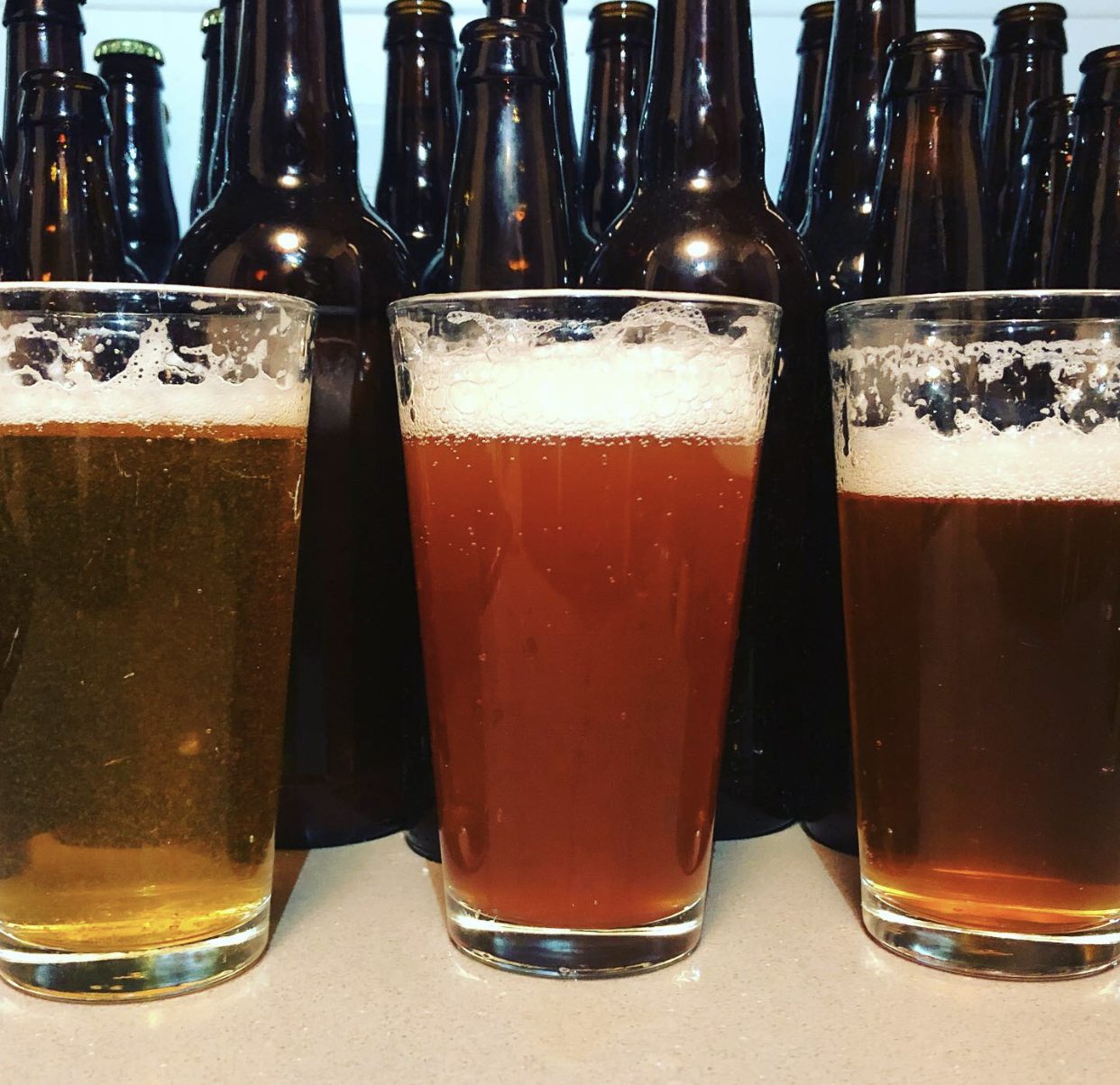
Photo courtesy of Back Home Beer
AC: I don’t generally get to talk to people in beer who have this kind of gravity to what they’re doing. Not to invalidate people’s reasons for opening a brewery, but this is how you’re honoring history and your personal history. Your grandfather brewed, right?
ZT: Yeah. So he home-brewed in the garden, beer and wine. And my aunt would say, “Oh yeah, he’d hide everything down in the cellar.” Well, not hide, but they basically let it ferment down there because it was cooler. They were in Shiraz, which is a warmer temperature, and he’d have friends and family come over and they’d try everything he was making. He was free to do that during that time.
It’s really interesting. I was talking to somebody else about this – my family’s from Shiraz and he was brewing in Shiraz, but in Tehran, there was a large craft beer company called Argo. They were around, I think, from like the 30s in Iran up until the revolution. They actually didn’t burn [the building] down or anything — they restored it.
Then I think a few years ago it opened up as a gallery or a space cafe, something like that. Then over the last year, they actually opened Argo Craft Beer in Iran, but as a non-alcoholic craft beer company.
They tapped Donald Otten from Heineken to come over to Iran, which he did. He was there for I think the past maybe eight, nine months. And he helped to build their recipes and production facility and guided them. He said it was his first time doing non-alcoholic beer, but he said it was quite the experience. So they brought back craft beer, but just non-alcoholic over the past year, which I thought was really interesting.
AC: And now, circling back to you, you get to bring alcoholic beer to New York City with Back Home Beer!
ZT: Yeah, exactly. It’s really interesting. They have an IPA and they call it the Iranian pale ale. That was funny. So I reached out to Donald on Instagram and we talked back and forth for a little bit. He’s Dutch and I was so interested to hear about his experience in Iran. He said he has never in his life met so many homebrewers in one country, which is crazy. There are a lot of people who are doing it underground, but just to hear him say that when he’s worked all over the world is crazy.
AC: So now I’ve got to ask here: Are you going to do your own IPA? Sort of seems like you might have to.
ZT: I might have to! We don’t have that in the plan, but maybe something fun for the future.

Back Home Beer’s Logo
Liked this article? Sign up for our newsletter to get the best craft beer writing on the web delivered straight to your inbox.

